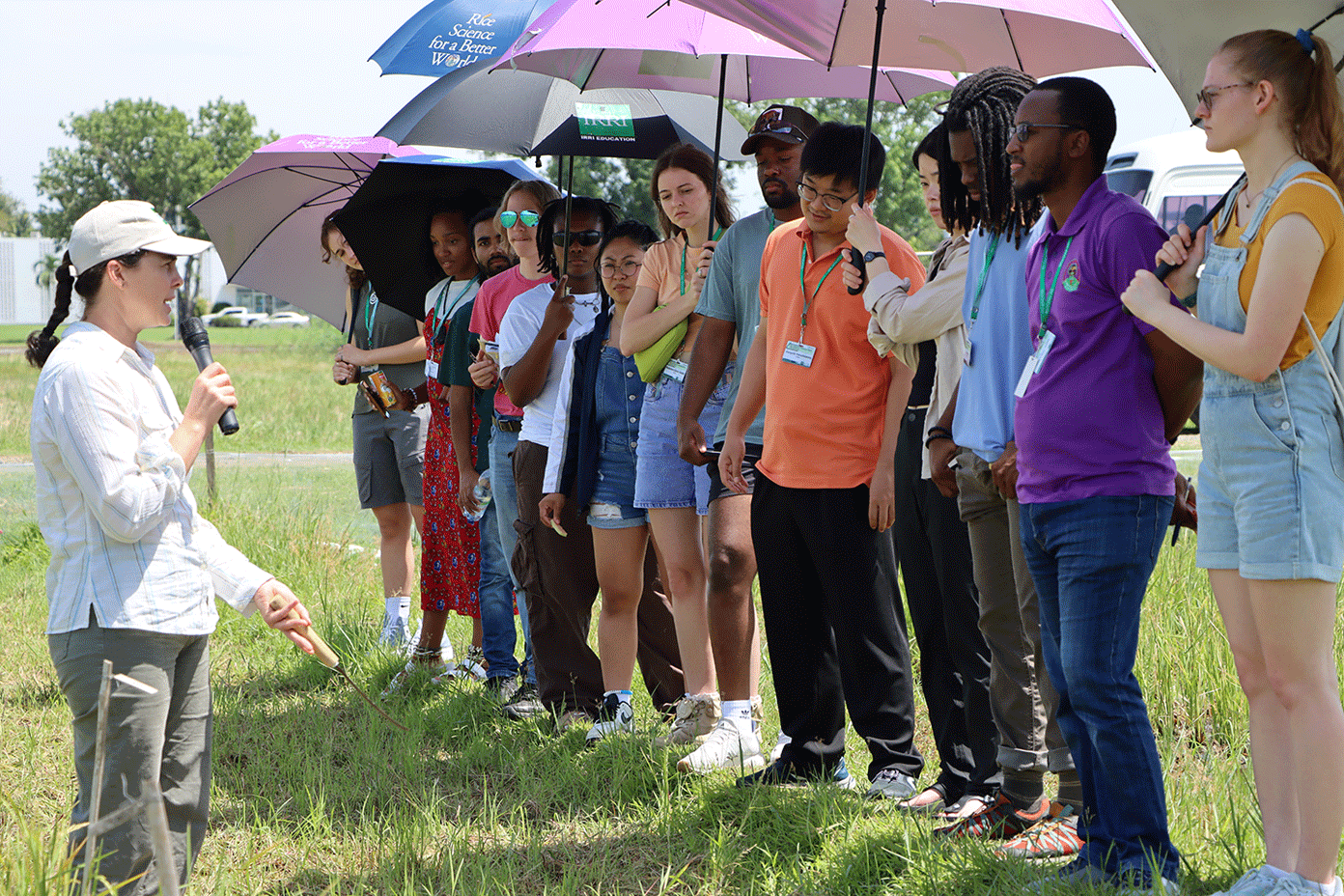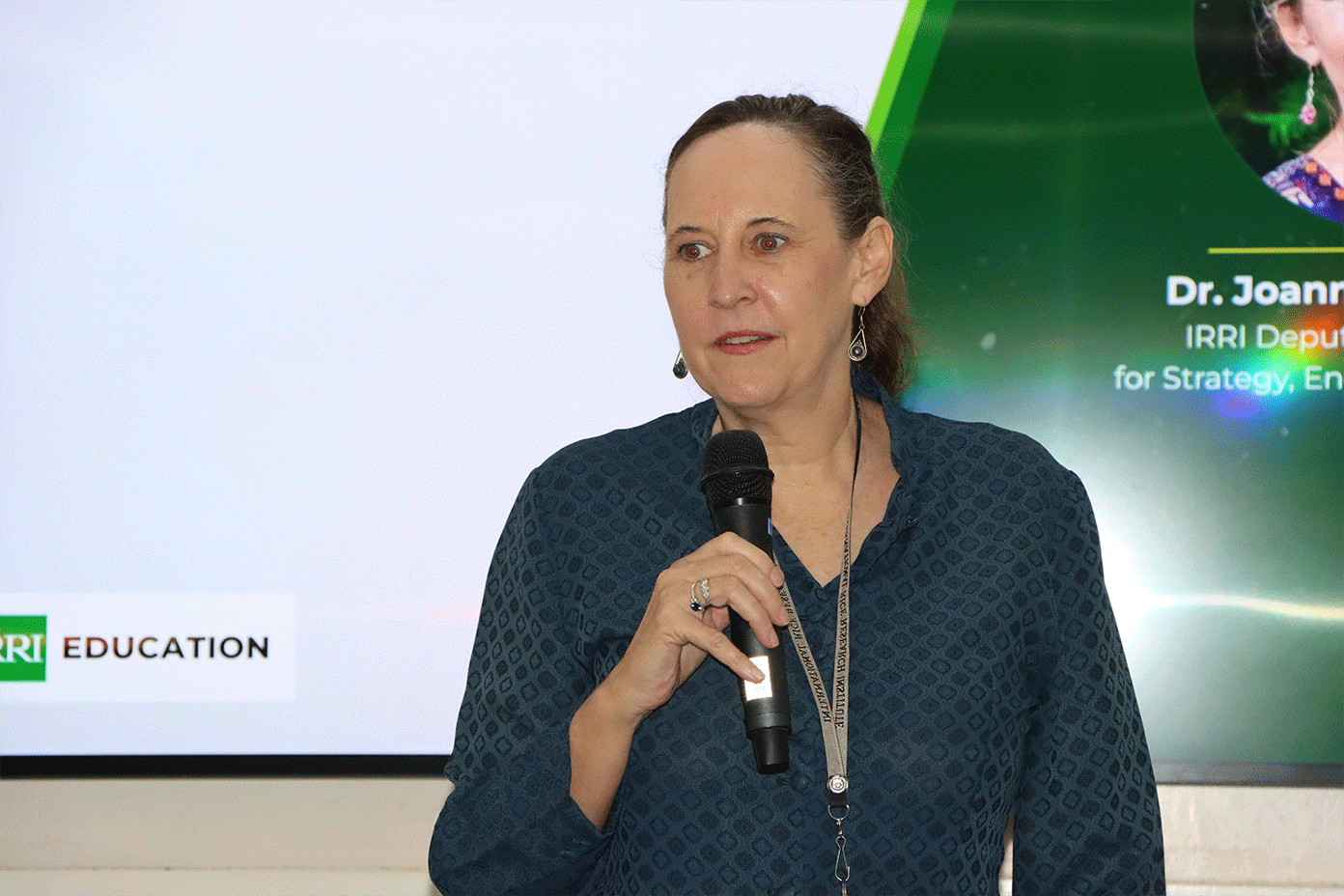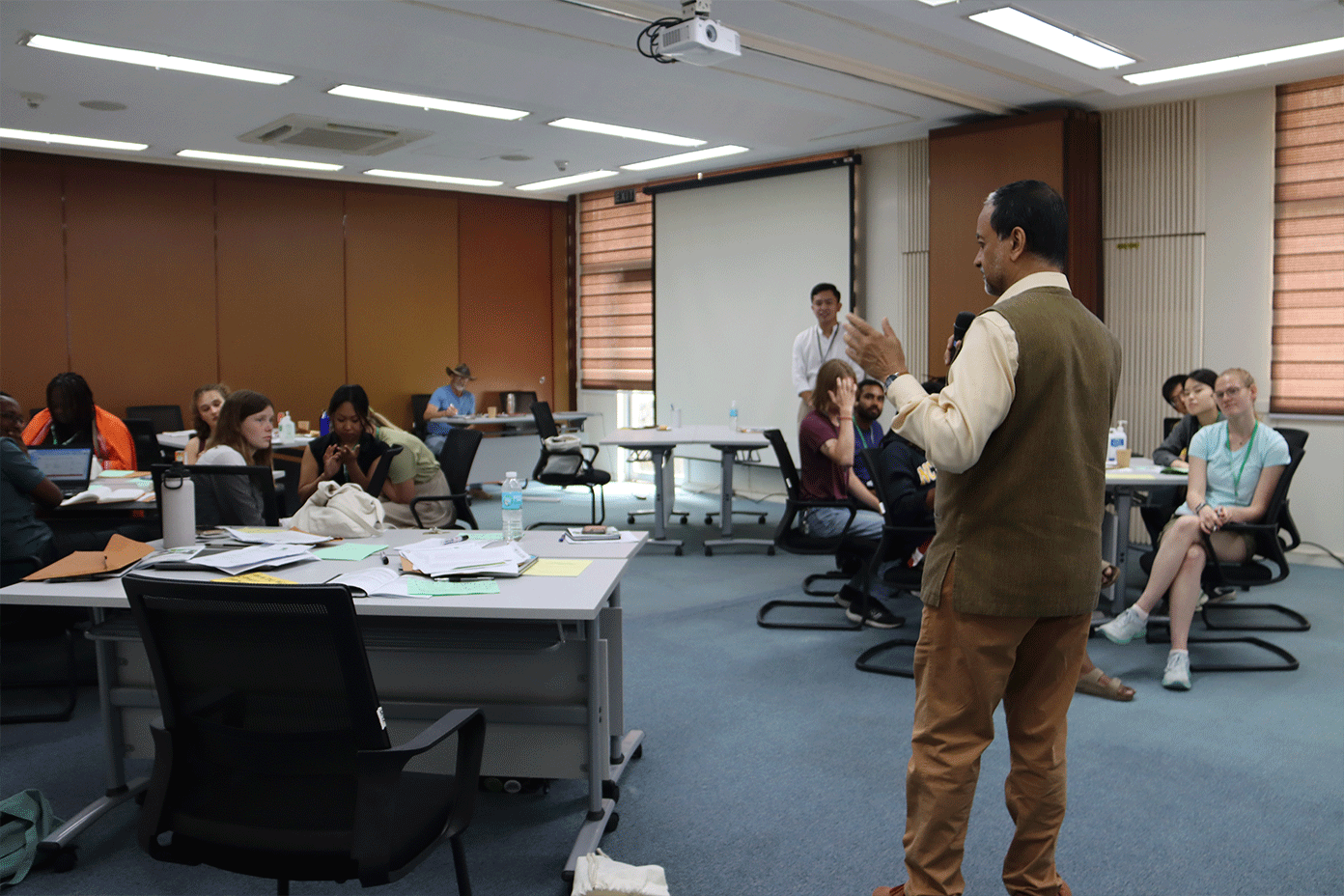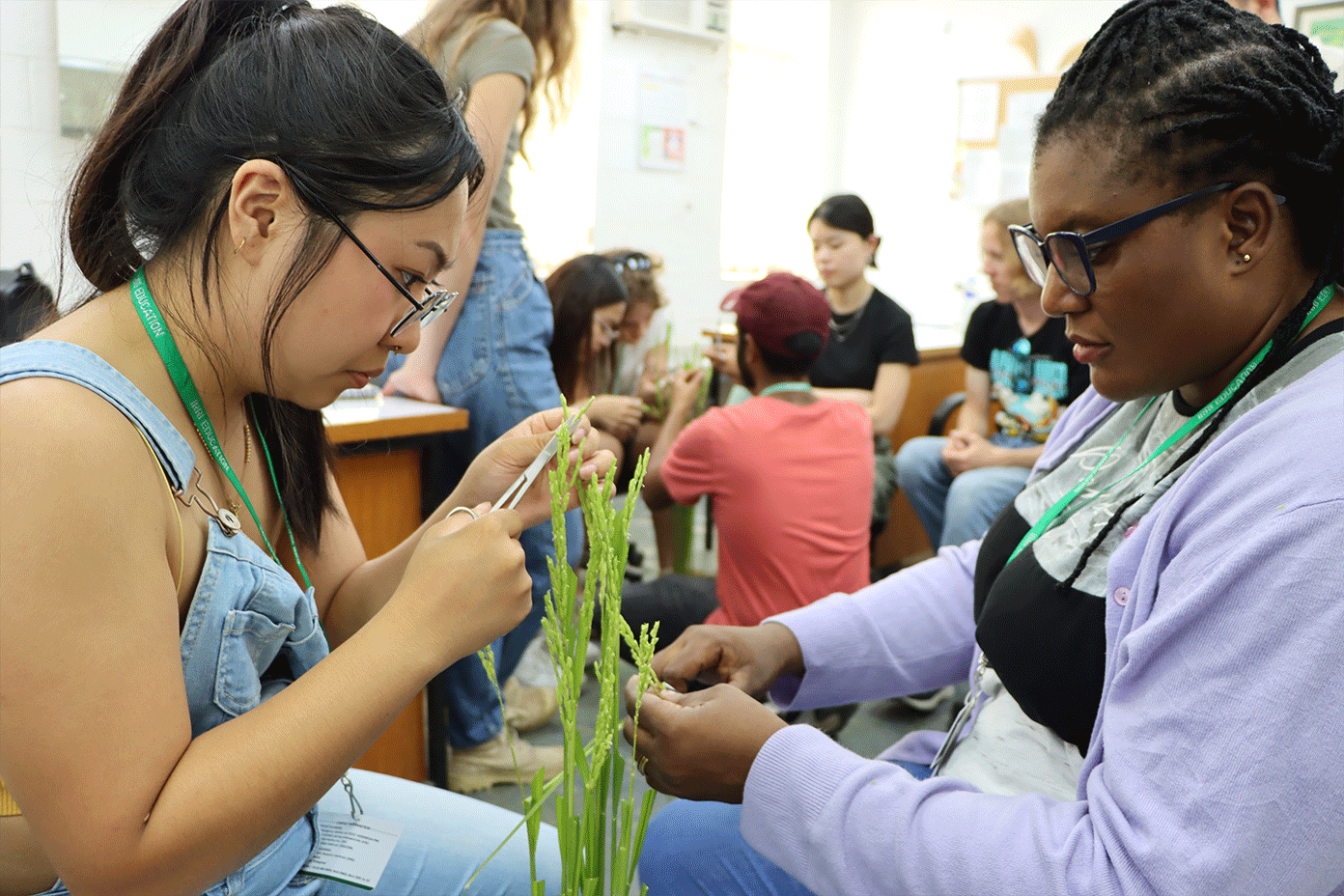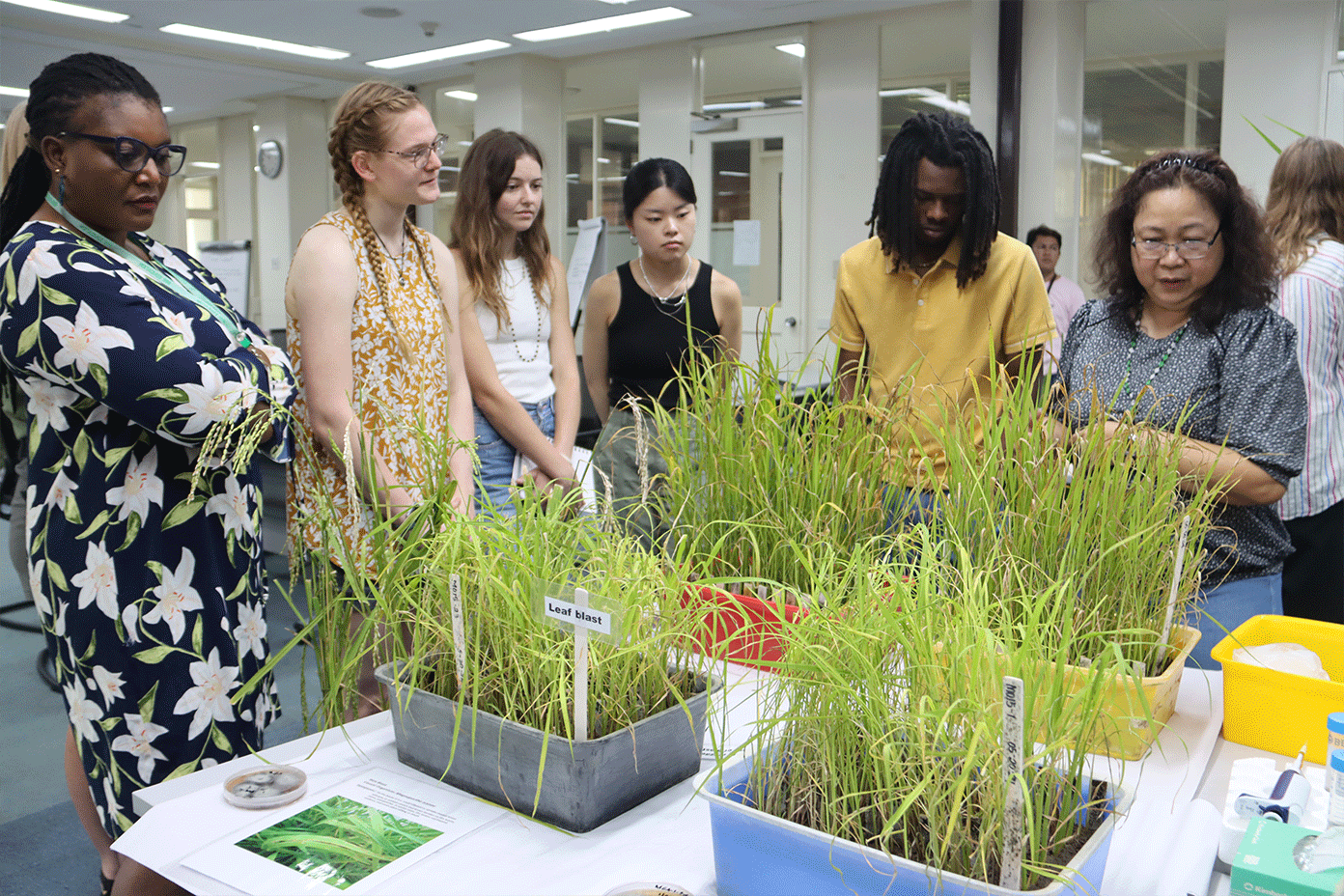Eighteen agriculture students and researchers from diverse backgrounds in Thailand, Vietnam, Japan, the United States, Ghana, Nigeria, and Bangladesh recently gathered at the International Rice Research Institute (IRRI) Headquarters in the Philippines. They came together to participate in one of IRRI Education’s flagship courses, Rice Research to Production (RR2P).
The RR2P course is an immersive three-week training program that covers the basics of rice production, the changes and challenges in the rice industry from production to market, the different research considerations around the rice-based agri-food systems, advancements in rice breeding, the socio-economic and environmental aspects of rice production, latest innovations in rice science, and building effective collaborations within the international research community.
The course officially started on 27 May. Present during the opening program was IRRI’s Deputy Director General for Strategy, Engagement, and Impact, Joanna Kane-Potaka, who delivered a message emphasizing the importance of IRRI’s work, especially in the current climate where rice production must consider not only its profitability but also its environmental impact and value to consumers.
She briefly introduced some of the major projects IRRI is focusing on, particularly in the field of nutrition. After releasing low and ultra-low glycemic index (GI) rice, IRRI is now working on enhancing these rice varieties to also be high in protein. Additionally, IRRI has successfully incorporated high-yield and high-zinc traits into all its breeding lines.


